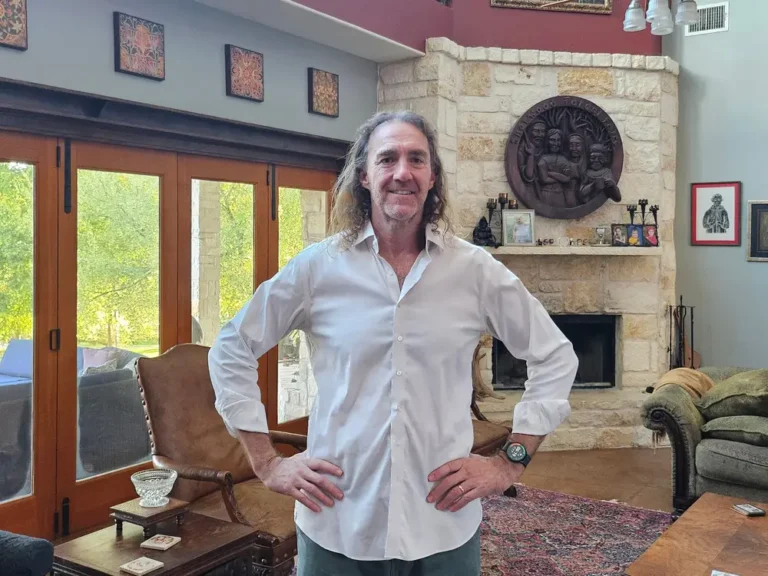Silicon Valley billionaires’ land grab for utopian development draws fury, fears

California Forever investors promise environmental stewardship, walkable neighborhoods in Solano County acreage
A group of ultra-wealthy Silicon Valley investors made Kathy Threlfall two offers to buy her Solano County farm and a two-story farmhouse built by her great-grandparents that has “a little cocky-wobble” with age. The prospective buyers, a who’s who of Silicon Valley billionaires, are buying farmland and suing neighbors in order to build their utopian vision north of Antioch and east of Vallejo.
Threlfall, 75, is no longer involved in cattle ranching, but she finds solace in the rolling hills and farms that surround her 240-acre property three miles northwest of the Sacramento River. The landscape, which is green in the winter and spring and golden now, gives her a sense of belonging, community, and “belonging somewhere.”
Now, the uber-rich from out of town, operating through a secretive company called Flannery Associates and its recently revealed parent company, California Forever, are bringing change, stress, and turmoil, according to Threlfall.
She declined the deal because she believes the investors understand financial returns but not local farmers’ connection to the land. “It’s strong and deep, it runs through generations, it runs through good and bad times,” Threlfall explained. “It hurts me to see my neighbors in pain, and this situation has caused them a lot of pain.”
Former Wall Street trader Jan Sramek’s California Forever plan has sparked outrage and concern from local residents all the way up to the United States Congress.
According to Solano County and a lawsuit filing, the investors’ group has spent more than $800 million acquiring tens of thousands of acres of land, with the identities of its members concealed until a recent New York Times report. In order to obtain more parcels, it is suing resistant farmers for a total of $510 million in damages, referring to them as “a group of wealthy landowners” and accusing them of conspiring to “overcharge” out of “endless greed.”
The majority of questions about the project were answered by referring to the company’s website.
The perceived bullying of farmers with agricultural roots in the county, as well as the project’s secrecy, have “angered the community very broadly and very deeply,” according to former Solano County Supervisor Duane Kromm.
“The animosity towards Flannery is so overwhelming,” said Kromm, who is now the leader of the citizens group Solano County Orderly Growth Committee. “Their arrogance, that ‘we can buy our way in and get whatever we want just because we have more money than God,’ is so distressing.” I believe they viewed it as a Monopoly board, despite the fact that there are people involved, interconnected agriculture, and history.”
The investors group stated on its newly launched website that it had begun buying Solano County land in secret to “avoid creating a rush of reckless short-term land speculation.” “We are now excited to move on to the real work of developing a thoughtful and consensus-minded plan,” it says.
According to California Forever, which was founded in 2017, project investors include billionaires such as venture capitalists Marc Andreessen and Michael Moritz, LinkedIn co-founder Reid Hoffman, and businesswoman Laurene Powell Jobs.
The company’s website debuted its plans this week: idyllic scenes of rolling hills and towns, complete with waterside villas and a bustling village square. Renderings depict idyllic scenes of children riding bikes, kayakers in a picturesque wetland, and a solar panel being installed against a rising sun. “We have the opportunity to build a new community that attracts new employers, creates good paying local jobs, builds homes in walkable neighborhoods, leads in environmental stewardship, and fuels a growing tax base,” the organization stated on its website.
Despite the glowing marketing, the venture has sparked widespread concern – and suspicion – among elected officials, who are concerned about everything from a water grab to suburban sprawl to the loss of important farmland.
While the website refers to a new community, Sramek, the Flannery’s founder and former Goldman Sachs trader, told U.S. Rep. Mike Thompson, a Napa Democrat, in an Aug. 29 meeting that “it might be one city, it might be two, it might be three,” Thompson, whose district includes the proposed development area, said. “They’re trying to figure out what their plan is,” Thompson explained.
In order to gauge community sentiment, the group recently sent a text message survey. It said a new city, tens of thousands of homes, a large solar array, orchards with over a million trees, and thousands of acres of new parks and open space could be on the ballot next year. Thompson stated that the group informed him that it intends to replace older wind turbines in the area with new ones.
According to California Forever, Sramek moved to California ten years ago after living in “many of the world’s most walkable, livable, and sustainable towns and cities” and fell in love with Solano County while fishing in the Delta. Sramek and his wife Naytri recently purchased a home in the county and “are excited to live here with their toddler daughter, soon-to-arrive little brother, and golden retriever Bruce,” according to the website.
Flannery has purchased 325 parcels of land since 2018, including 90 this year, making it the county’s largest landowner, according to Solano County Supervisor Wanda Williams. According to California Forever, it owns more than 50,000 acres between Fairfield and Rio Vista, or “about half of the properties in this area.”
U.S. Rep. John Garamendi, a Democrat from Richmond whose district includes the project area, said some of the opponents of the group’s purchases are “land rich and money poor” farmers with ranches dating back four or five generations. Garamendi called the lawsuit in federal court in Sacramento “outrageous” and “despicable,” comparing it to “mobster practices.” Thompson claimed a landowner told him he was forced to sell his property to Flannery after the company sued him and his brother, who “didn’t have the pockets to compete against these guys.”
Loss of agricultural land due to suburban sprawl is a major concern for project opponents. Solano County’s agriculture was valued at $391 million last year, with $86 million coming from cattle, sheep, goats, and poultry, and $250 million coming from field crops, vegetables, fruits, and nuts. “Without farmers, we can’t eat,” Williams explained.
Since the late 1800s, Jeannie McCormack’s family has lived on her 3,700-acre farm. Her husband, Al Medvitz, raises sheep for wool and lamb, grows alfalfa, and leases out land for wheat, barley, and other crops. The couple declined Flannery’s offer to purchase their land, which is unique “because it requires nothing other than what Mother Nature provides.” And it’s lovely,” McCormack, 79, said.
According to the couple, their crops require no irrigation other than drinking water for sheep and water from the Sacramento River for 100 acres of alfalfa and a 50-acre vineyard.
Forever According to the state’s website, grazing land will be developed, but the state plans “a compact community away from prime agricultural lands, surrounded by open space.” Thompson stated that California Forever referred to the land as “on the low end” for agriculture. “That may be on the low end compared to high-end cabernet grapes or something, but if you’re a cattle rancher or a sheep rancher, you probably wouldn’t have the same idea,” Thompson explained.
Forever Water Concerns California’s plan piqued the interest of state Senator Melissa Hurtado. The Fresno Democrat expressed concern that the investors, and others throughout California, may be attempting to gain control of water by purchasing land with water rights. That is a valid concern, according to Brian Gray, a water expert at the Public Policy Institute of California, but California Forever would face significant challenges if it attempted to sell groundwater or river water, or use agriculture-designated water for a new city or cities.
According to the website of Forever California, the organization intends to use water from “multiple sources that we have obtained or that will be more fully developed.”
Looking out over the Sacramento River last week, McCormack and Medvitz noticed a grain ship pushing upstream. If Mark Twain had taken a riverboat up the Sacramento in the past, he would have seen a similar landscape, minus the wind turbines, according to Medvitz. According to McCormack, the landscape provides a distinct sense of place. “It would be a shame,” she admitted, “to lose it.”






